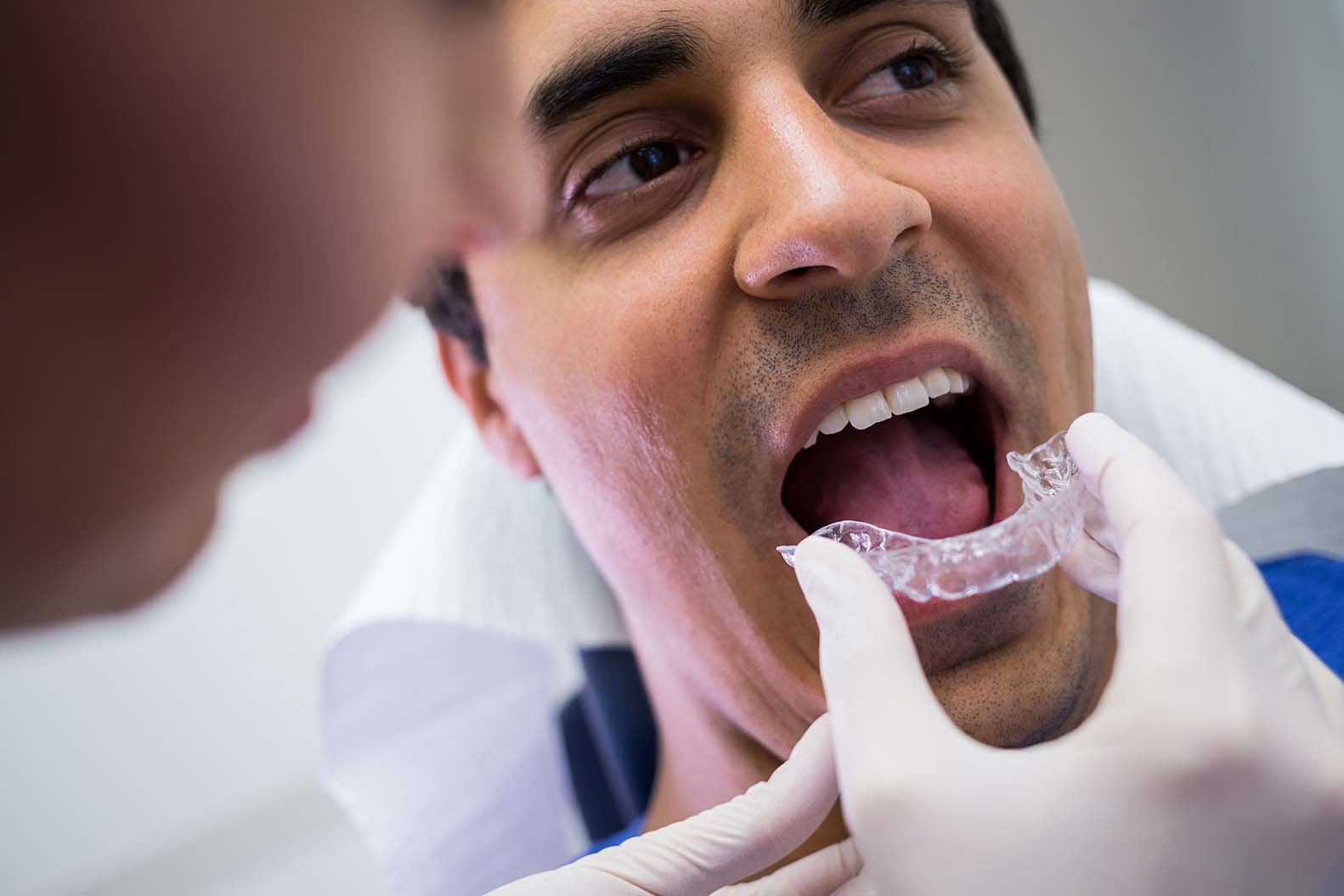Do you often wake up with a sore jaw or headaches? You might be experiencing bruxism, commonly known as night teeth grinding. This condition, characterized by the clenching or grinding of teeth during sleep, can significantly impact dental health and overall well-being. Fortunately, there are effective solutions for treating it, including the use of night guards and proper maintenance practices.
Understanding Bruxism and Its Causes
Bruxism, commonly known as teeth grinding or clenching, is a prevalent oral parafunctional activity. This condition can have various causes, often intertwining physical, psychological, and environmental factors. Understanding the underlying triggers for it is crucial in developing effective prevention and treatment strategies. From stress and malocclusion to lifestyle choices and medical conditions, exploring the causes provides insights into managing and alleviating this dental concern.
Stress and Anxiety: Emotional stress contributes to teeth grinding.
Malocclusion (Misaligned Teeth): Poor teeth alignment leads to jaw seeking a comfortable position.
Sleep Disorders: Conditions like sleep apnea contribute to grinding during sleep.
Lifestyle Factors: Excessive alcohol consumption and smoking increase bruxism risk.
Medications: Certain medications, like antidepressants, can be associated with grinding.
Psychological Factors: Aggression or competitiveness may also contribute to it.
Age Factor: It is more common in children but can persist into adulthood.
Caffeine Intake: High caffeine consumption may be linked to increased grinding.
Health Consequences of Untreated Bruxism
Seeking timely treatment for bruxism is essential to prevent further health consequences and improve overall quality of life.
Untreated bruxism can lead to tooth wear and damage, including cracks and fractures.
Chronic jaw clenching and teeth grinding can result in temporomandibular joint (TMJ) disorder.
Tension headaches and facial muscle pain are common symptoms of the same.
Bruxism can contribute to sleep disturbances, including disrupted sleep patterns and excessive tiredness.
Severe cases of untreated problem may lead to complications such as tooth loss and gum recession.
Night Teeth Grinding Treatment Options
Are nights of teeth grinding disrupting your sleep? Explore effective treatment options to silence the nocturnal grind and wake up to a healthier, more restful tomorrow.
Night Guards: A Vital Solution: Night guards, also known as bruxism mouth guards or night bite guards, play a pivotal role in managing it. These custom-fitted devices create a protective barrier between the upper and lower teeth, alleviating the damaging effects of grinding and clenching. They not only prevent tooth wear and fractures but also reduce muscle tension, providing relief from associated headaches and jaw pain.
Mouthguards for Sleep Apnea: For those dealing with both bruxism and sleep apnea, a customized mouthguard for sleep apnea can serve a dual purpose. These devices help maintain an open airway, promoting uninterrupted breathing while also protecting teeth from grinding.
Curing Nightly Teeth Grinding with Bruxism Treatment: While night guards offer immediate relief, addressing the root causes of it is crucial for a comprehensive solution. Stress management techniques, behavioral therapies, and lifestyle adjustments can significantly reduce the frequency and intensity of teeth grinding episodes.
Proper Maintenance for Longevity: Maintaining night guards is equally important in ensuring their effectiveness. Regular night guard cleaning with a dedicated mouth guard cleaner helps remove bacteria, plaque, and debris that accumulate during the day. This practice prevents the growth of harmful bacteria in the mouth and avoids potential dental problems.
Stop Teeth Grinding: A Holistic Approach
In the pursuit to stop teeth grinding, adopting a holistic approach that includes proper use of night guards, addressing underlying causes, and maintaining good oral hygiene is key. Dental guards for grinding teeth, when coupled with consistent care, contribute to a healthier sleep routine, safeguarding both your dental health and overall well-being.
Conclusion
Curing nightly teeth grinding requires a combination of effective treatment options and proper maintenance practices. Night guards, whether for bruxism or sleep apnea, serve as protective shields against the detrimental effects of teeth grinding. Embracing a comprehensive approach that includes bruxism treatment, lifestyle adjustments, and regular night guard cleaning ensures a restful and rejuvenating sleep experience. Stop teeth grinding in their tracks by taking proactive steps towards a healthier, happier you.
If you’re encountering dental problems in North Vancouver, consider contacting Infinity Dental Care. Our team provides customized dental treatments to suit your individual needs. Reach out to us today to book appointment. We dedicate ourselves to preserving your smile for the long term.

